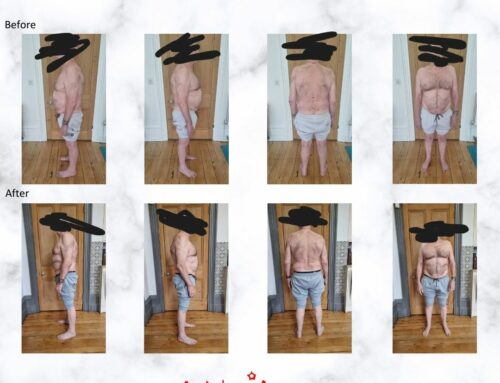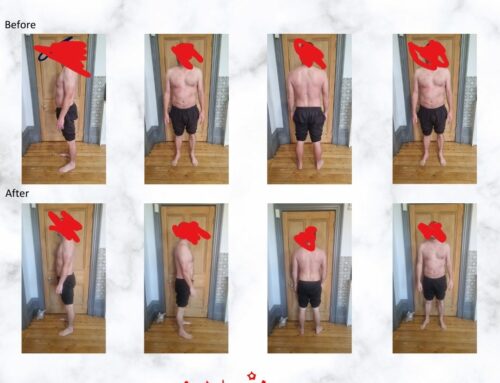“The influence of psychosocial factors on the development and progression of cancer has been a longstanding hypothesis since ancient times. In fact, epidemiological and clinical studies over the past 30 years have provided strong evidence for links between chronic stress, depression and social isolation and cancer progression. By contrast, there is only limited evidence for the role of these behavioral factors in cancer initiation. Recent cellular and molecular studies have identified specific signaling pathways that impact cancer growth and metastasis.”1
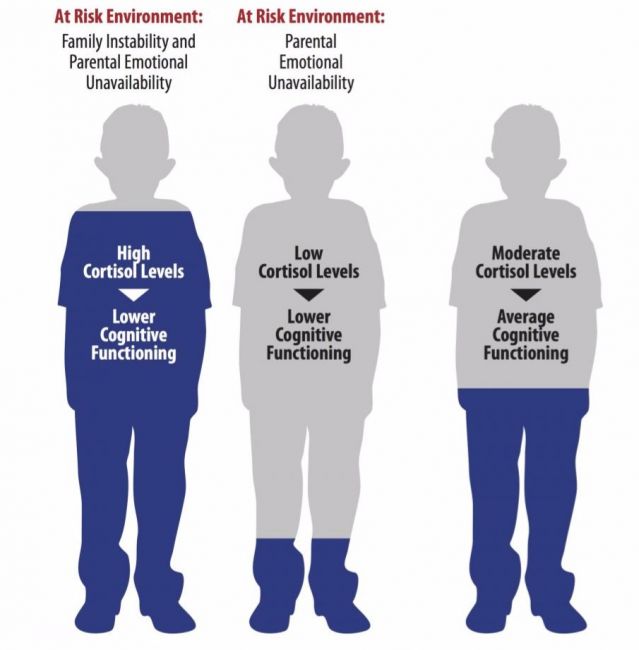
All stress summates- one’s physical, emotional, mental and spiritual tremors. These are all interpreted identically at the cellular level, any perceived threat will produce the classic biological stress response depicted in the classic stress-recovery cycle. All stressors trigger the release of glucocorticoid (stress) hormones and produce classic fear (sympathetic) responses such as elevated heart rate, elevated blood pressure, anxiety, sweating, nervousness, mental alertness and an inability to think creatively.
“Sustained activation of negative affective pathways may provide the strongest links to cancer progression.”2

Every felt your mind has just gone blank? When stressors summate within the individual’s capacity to produce an anabolic rebound (homeostasis), the stress sees as a growth and development stimulus.
When a threat is detected, the hypothalamus stimulates the generation of several key stress hormones, including norepinephrine and cortisol. Large levels of norepinephrine enter the pre frontal cortex and serve to dampen neuronal firing and impair effective communication. This impairment essentially clears out your working memory (whatever you were thinking about is now gone) and stops the rational, logical pre frontal cortex from influencing other brain regions.
At the same time, large levels of cortisol enter the hippocampus and not only disrupt activation patterns there, but also (with prolonged exposure) kill hippocampal neurons. This serves to impede the ability to access old memories and skews the perception and storage of new memories.
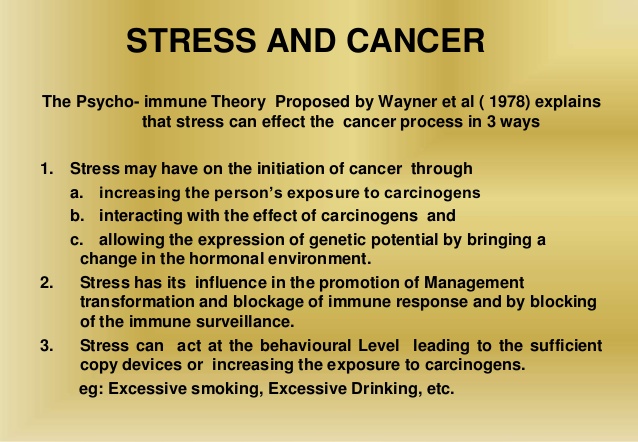
In short, when an event is interpreted as a threat and a stress response is triggered, working memory is wiped clean, recall mechanisms are disrupted, and emotionally laden hot cognition driven by the hypothalamus (and other subcortical regions) overrides the normally rational cold cognition driven by the prefrontal cortex.
Taken together, this process leads to a mind blank, making logical cognitive activity difficult to undertake.
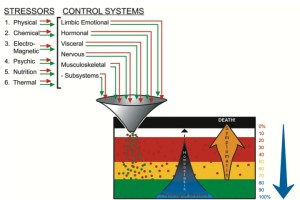
The principle of stress summation is divided into breakdown hormones and repair hormones in the body. In the diagram above the green simulates good stress combining to maintain and produce healthy physiological systems, it’s is important to:
- Load the long bones of the body in a gravitational field in order to maintain adequate density
- Provide the body with adequate stress on the musculature as we age or lose muscle mass
- Maintain some stress on the immune system to keep it active in its hunt for cancer cells and other invaders, many of which come through our food, water and air supply.
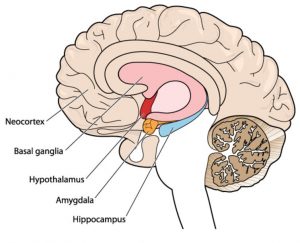
When a cancer patient comes to us for rehab programme. We need to consider the following points that contribute to the red zone.
- The stress of being diagnosed with cancer alone produces a significant psychological load. The family and friends reaction may magnify stress levels.
- The dietary stress that almost exists in cancer patients adds to the stress picture. Weston. A. Price studied the diets of native peoples of some 15 different countries. He found that cancer and disease were almost non-existent wherever natives were eating whole food diets. When ever western style foods was introduced to previously healthy nation populations such diseases emerged.
- Additional stressors such as chemical/hormonal imbalances and electromagnetic stressors form the modern workplace and conventional cancer treatments further incapacitate all physiological systems, including the immune system.
Sympathetic/Breakdown hormones
Safety/Security threats- Financial stress
Food stressors – Poor quality
Love/sex issues – Relationships
Toxic environment- Dirty air, chlorinated water,ELM pollution, medical drugs, industrial toxins, disrupted sleep, wake cycles
Stinkin thinking- Thoughts, words, deeds
Exercise< or >
Surpressed repair hormones
Melatonin
High
Dhea
Testosterone
Oestrogen
Immune messengers- Cytokines, interleukins
Blood sugar imbalances- Insulin
Bibliography
1.2.NCIB -Impact of stress on cancer metastasis Myrthala Moreno-Smith,1 Susan K Lutgendorf,2,3,4,5 and Anil K Sood†,1,6,7
Paul Chek – Cancer blogs


